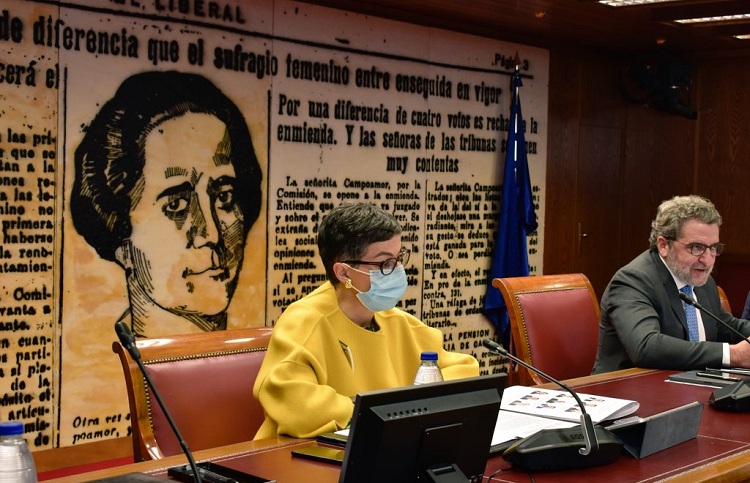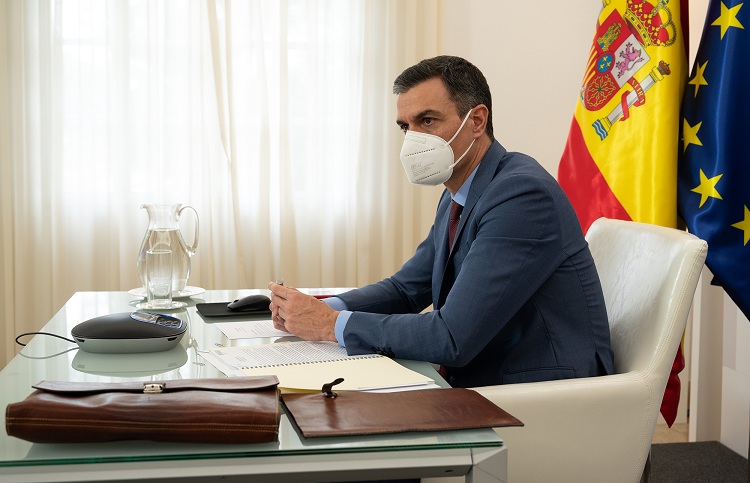The Diplomat
The new Foreign Action Strategy 2021-24 passed yesterday in the Senate the second and final parliamentary procedure before its approval by the Council of Ministers, in a session in which the bad atmosphere created by the interference of the second vice-president of the Government, Pablo Iglesias, in the Government’s foreign policy was once again evident.
The Minister of Foreign Affairs, Arancha González Laya, yesterday presented the Foreign Action Strategy before the Senate Foreign Affairs Committee, just a week after doing the same in the Foreign Affairs Committee of the Congress. Once it has passed through both Houses of Parliament, the Strategy will be submitted to the Foreign Policy Council for its opinion, and will then return to the Council of Ministers for final approval, which should occur at the beginning of March.
During his appearance, González Laya once again recalled that the Strategy is based on “four global axes” – the promotion of human rights, the commitment to an integrated and inclusive economy, the defence of a more sustainable planet and “a determined will to contribute to the improvement of global governance mechanisms” – and on “four major guiding principles” – more Europe, better multilateralism, strategic bilateralism and a commitment to solidarity. She also warned that “foreign action is a state policy” because Spain’s position in the world “will be all the stronger the stronger the consensus in our country”.
As expected, the debate became a faithful reproduction of the one that took place just seven days earlier in the Lower House, with a conservative opposition that once again denounced the deterioration of Spain’s international image, which it attributed in large part to Pablo Iglesias’ interference in the government’s foreign policy, and a nationalist opposition that took advantage of the debate to call for the release of “political prisoners” and the resolution of the Basque and Catalan “political conflicts”.
“It is impossible for Spain to achieve a more relevant role on the international stage when our foreign policy is being boycotted from the Council of Ministers itself, with a vice-president who works tirelessly to attack our interests on the international stage”, and when “part of the government is encouraging the riots” in favour of the rapper Pablo Hásel, denounced the PP spokesperson, Pilar Rojo. “The defence of our values is at stake”, added Rojo, who also criticised the lack of concrete proposals in the Strategy “beyond commitments and declarations”.
For his part, the spokesperson for Ciudadanos, Emilio Argüeso, regretted that the Strategy “lacks concrete actions” and an economic report, so that the document “seems more like a declaration of intentions than a plan to strengthen our presence abroad”. He also asked whether “the government shares Pablo Iglesias’s statements against the Jewish people”. In addition, the spokesperson for the Mixed Group and senator for Vox, José Manuel Marín, called for “Spain to be returned to the place where it should be, both on a global and European level”, which is not going to be achieved with a feminist foreign policy because “foreign policy is neither feminist nor masculine”.
In her answers, González Laya assured that the Strategy does include concrete measures and that, for the moment, the document is a “contract” whose results can only be determined once it is up and running. She also recalled that France, Canada, Mexico and Sweden have also adopted “a feminist foreign policy”.
For his part, the Junts senator and spokesman for the Nationalist Group, Josep Lluis Cleries, denounced the fact that the government promotes democracy and human rights in the world “only for show” while it maintains “political prisoners and political exiles”, and Luis Jesús Uribe-Etxebarría, of the PNV, said that the government should take into account the reality of a “plurinational, plurilingual and pluricultural state” in its foreign policy and resolve through dialogue the “conflicts of a political nature” that exist in Catalonia and the Basque Country if it wants to present itself to the world as an “example and model” of diversity management.







